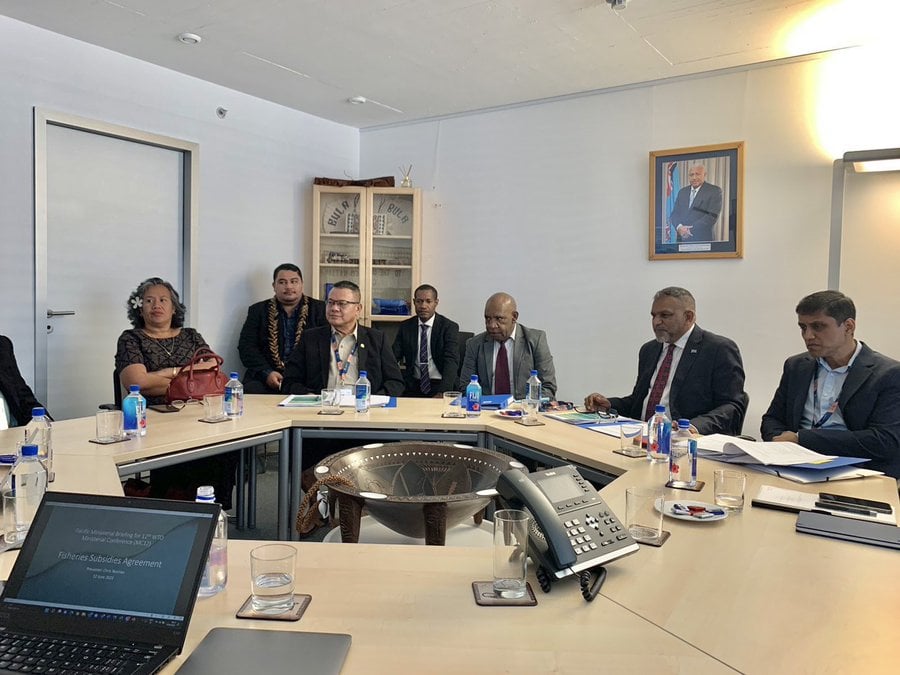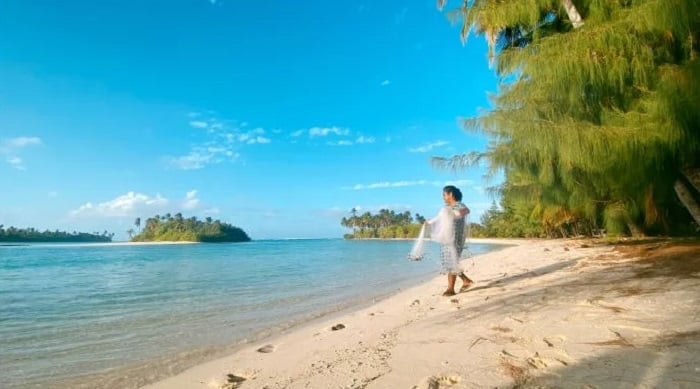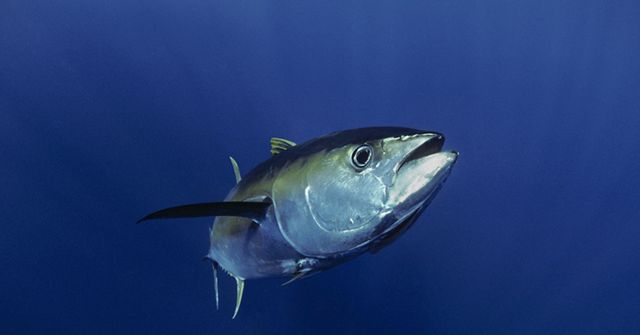Turtle Research and Monitoring Database System is now capable of supporting new and larger amounts of data in the Pacific as it has been recently upgraded and uploaded to an online platform
The Pacific’s 30-year-old Turtle Research and Monitoring Database System, better known as TREDS, has recently been upgraded and uploaded to an online platform for better sharing and outcome-focused data collection purposes.
The database, which started off as a Microsoft Access-based system is now a web-based platform, capable of supporting new and larger amounts of data, and is more easily accessible to more people globally.
TREDS was established in 1993 soon after the Secretariat of the Pacific Regional Environment Programme (SPREP) created its Regional Marine Turtle Conservation Programme in 1990. Its purpose is to record when and where turtles are tagged and track future encounters with the same animal across the Pacific Ocean. Tracking the movements of individual turtles, and the time they spend in different places is important to increase our understanding of turtle habitat use, migratory patterns and threats to their survival – and strengthening progress towards long term conservation and management of these ancient mariners. TREDS can be used to collate data from strandings, tagging, nesting, emergence, and beach surveys as well as other biological data on marine turtles. The database can also be used to monitor and sustainably manage marine turtle populations as well as their nesting and foraging sites.
The initiative was a collaborative effort by SPREP, Western Pacific Regional Fishery Management Council, Pacific Community (SPC), United States National Oceanic and Atmospheric Administration (NOAA) Fisheries, Queensland Government Environmental Protection Agency, South-East Asia Fisheries Development Centre and the Marine Research Foundation.
Since its inception, TREDS has helped demonstrate the imperative of regional collaboration in sea turtle conservation, providing evidence that some countries share the same turtle populations. Understanding of the long distances that turtles traverse has served to establish a sense of wonder for these animals among fishers and many coastal communities, particularly those who may have captured or released a tagged turtle.
In 2004, a green turtle was tagged and released in Samoa after being kept in captivity. It was recaptured five years later foraging close to Tabiteuea Island, Kiribati, approximately 2,020 kilometres northwest of Samoa. A male green turtle named Popora, released in French Polynesia, was tracked more than 4,500 kilometres in a crossing from Tahiti (Bora Bora) to New Caledonia. Other green turtles from Tahiti tend to visit Fijian waters for foraging.
In 2018, turtle conservationists and enthusiasts followed a young loggerhead turtle named Ariti via satellite tracking. Ariti completed a 14,000-kilometre migration from Tahiti (Moorea atoll) all the way to Fiji, then to Nauru, the Marshall Islands in the northern hemisphere, then back south of the equator close to American Samoa.
The ability of TREDS to easily provide visualisations of the data is a valuable tool for decision-making and education.
Lorraine Aplasca, of the Large Marine Vertebrates Research Institute (LAMAVE) in the Philippines says, “As the project leader for LAMAVE’s marine turtle citizen science project in the Philippines and someone who is constantly in search of a good database system, I can see using TREDS to better visualise our data − that is, the location and density of marine turtle encounters in the Philippines, and to easily identify high-use habitats that need better protection. I especially like the mapping feature that dynamically shows the total number of encounters in each area as I zoom in and out.” LAMAVE is currently running training workshops for Pacific Island countries to increase the collection of genetic samples across the region, which again, will contribute to informing better turtle conservation initiatives.
The database upgrade was commissioned by SPREP in August 2020 and was officially completed on 28 April 2022. The work has been carried out by the consulting company Eighty Options in close collaboration with SPREP Turtle Database and Conservation Officer, Unity Roebeck. The upgrade focused on an improved User Interface (UI), User Experience (UX), and a more streamlined functionality. Of particular value is the ability to record data off-line on an application, as many sites where turtle research is undertaken are remote. Additionally, all the historical data that was stored in TREDS was successfully migrated over to the new platform, allowing TREDS users to have a continuation of their data.
“The ability to work in remote locations where there is no connectivity opens up a whole new area for digital data collection,” says Hayley Versace in the Conflict Islands, eastern Papua New Guinea. “It will enable us to become a paperless organisation in the future, which is one of our aims here at Conflict Islands Conservation Initiative. The new TREDS app is easy to use and has a great practical application in field work now and into the future.”
The upgrade of TREDS to the new online platform also gave the team the opportunity to add new enhancement features so that the database could sufficiently record more data than was originally designed. This included the ability to upload photos to the encounters as well as additional fields to record more genetics-based data.
A series of virtual training sessions are being held to familiarise users with the updates. “This is also an opportunity to raise awareness on TREDS and how it can assist in the conservation and management of turtles,” says Roebeck.
The employment of the SPREP Turtle Database and Conservation Officer and the costs of the TREDS upgrade were funded from June 2020 to May 2022 through the By-catch and Integrated Ecosystem Management (BIEM) Initiative of the Pacific-European Union Marine Partnership (PEUMP) programme funded by the European Union and the Government of Sweden. Further funding to strengthen SPREP’s work to support turtle conservation across the Pacific is guaranteed and a new programme of work will be announced soon.
Funded by the European Union and the Government of Sweden, the €45 million PEUMP programme promotes sustainable management and sound ocean governance for food security and economic growth, while addressing climate change resilience and conservation of marine biodiversity. It follows a comprehensive approach, integrating issues related to oceanic fisheries, coastal fisheries, community development, marine conservation, and capacity building under one single regional action.
This story was written by Christine Tuioti, originally published at SPREP on 06 June 2022, reposted via PACNEWS.




